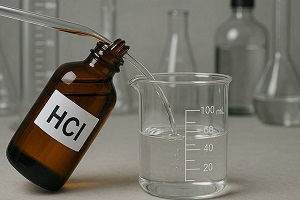- Unit 13,Floor 5h, No 179, Orchid Building, East-Ferdows, Tehran, IRAN
- info@Armaantejarat.com
- 0098912021800

Reaction between calcium carbonate and hydrochloric acid

Reaction between calcium carbonate and hydrochloric acid
Reaction between calcium carbonate and hydrochloric acid What is the reaction between calcium carbonate and hydrochloric acid? The best way to answer questions like this is to get an idea of the general ways an acid reacts with different types of compounds and what is produced. An acid like hydrochloric acid is able to donate a hydrogen ion to reactants and also has a chloride ion available. Other acids have a different anion, but they react the same as HCl. The chloride ion, or anion, in acids, such as the metal ion in a carbonate compound, can combine with cations. In this case, the chloride ion combines with the calcium ion to form the compound calcium chloride. Of course, you need to use ionic charges to write the correct formula. Calcium chloride is a salt, and the formula shows a 1:2 ratio in this case. The hydrogen ion can form new compounds with another anionic compound. In this case, the two hydrogen ions can combine with the oxygen from the calcium carbonate water. Oxygen can take two electrons from the carbonate ion. What is left of the carbonate ion? A carbon atom and two more oxygen atoms, which thus form the carbon dioxide compound. So the reaction is as follows: Calcium carbonate + hydrochloric acid Calcium chloride + water + carbon dioxide → In general An acid + a carbonate (or a hydrogen carbonate) → a salt + water + carbon dioxide To write it in symbols, it is important to make sure you have the correct formula for all cases and to balance it correctly. By simply counting the atoms, and observing the general patterns and looking at the place of production, you can arrive at the balance. So the salt formula helps balance the acid and carbonate on the LHS. Then, the total number of carbonate ions in the calcium carbonate tells you how many water molecules and how many carbon dioxide molecules you need. Coated calcium carbonate is a special type of calcium carbonate powder product that is coated with stearic acid. The hydrophobicity of the coated calcium carbonate surface provides a wide range of applications for this type of calcium carbonate. The use of coated calcium carbonate is expanding and becoming more frequent day by day. Compared to simple calcium carbonate, which is hydrophilic, coated calcium carbonate powder is completely hydrophobic and does not dissolve in water at all and remains on the water surface. This property is used for use in anti-rust paint, masterbatch and granule production, etc. Coated calcium carbonate powders (coated) have lubricating properties and act as a waterproof layer. Other advantages of coating include reducing oil absorption (fast diffusion, low hardness, brightness and economic efficiency). In the wood glue production industries, plastics industries, rubber industries, flooring industries, PVC sheet industries, adhesive and resin industries, wire and cable industries, PVC pipe industries, artificial leather, ink and paper industries, pharmaceutical industries, etc., a combination of calcium carbonate with coated acid is used. The use of coated calcium carbonate in rubber production reduces wear and corrosion of rubber products. Coated calcium carbonate is the best additive for PVC production because it can increase the resistance of PVC pipes by up to ten times and create a more uniform and beautiful appearance. If coated calcium carbonate is used in the production of oil paint as a filler, its production cost will be greatly reduced and it will have better coverage. So in this text we were able to give a brief explanation of the reaction between calcium carbonate and hydrochloric acid.
Similar Blog


Reaction between calcium carbonate and hydrochloric acid
Reaction between calcium carbonate and hydrochloric acid What is the reaction between calcium carbonate and hydrochloric acid? The best way to answer...
Application of calcium carbonate in animal feed
Calcium plays a very important role in animal growth. This nutrient helps strengthen the bones of livestock and also improves the strength of eggs. Ca...
Edible calcium carbonate
Edible Calcium Carbonate: A Comprehensive Guide, Benefits, Uses, Types, and Key Points Calcium carbonate (CaCO3) is one of the most abundant minera...
